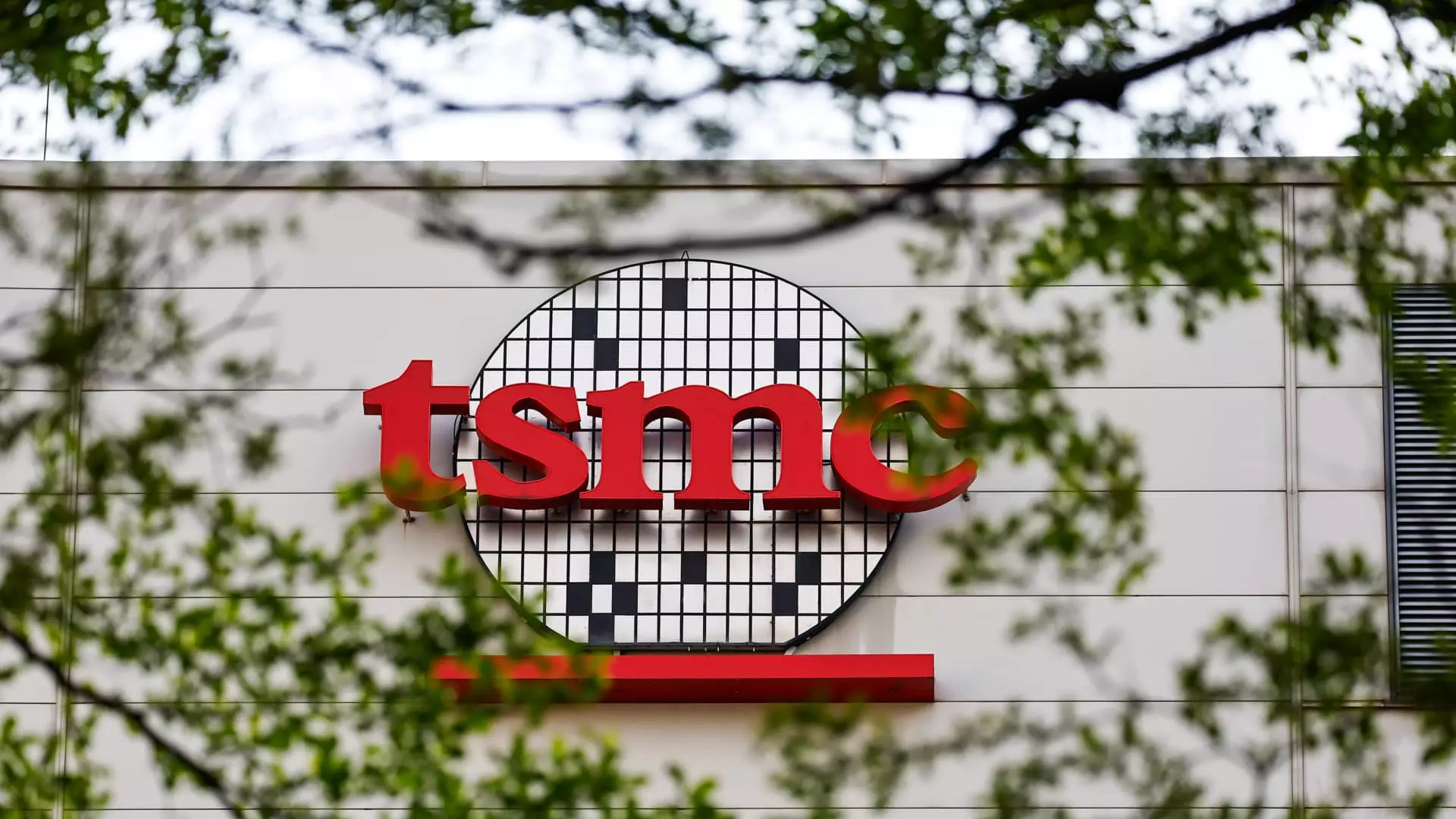The Taiwan Semiconductor Manufacturing Company (TSMC) stands as a giant in the global semiconductor industry, and its recent quarterly results underscore an undeniable reality: the demand for AI chips is unparalleled. In a world increasingly driven by artificial intelligence, TSMC reported a robust net income of NT$361.56 billion, a staggering 60.3% leap from the previous year. This quarterly performance, exceeding expectations with revenues reaching NT$839.25 billion, is a testament to the company’s strategic positioning and its pivotal role in the tech ecosystem. Yet, a closer examination reveals that this remarkable growth also comes with inherent risks as it operates within a complex geopolitical landscape.
AI and the Future of Semiconductor Design
The explosive demand for AI chips is not merely a fleeting trend; it signifies a transformative shift in global technology. TSMC’s most recent quarterly performance showcased the high-performance computing sector—integral to AI and 5G technologies—accounting for 59% of its total revenue, reflecting a massive 7% increase from the previous quarter. Such figures are indicative of the shifting paradigms in chip design, where smaller nanometer processes (7nm and below) dominate market dynamics. This miniaturization denotes improved efficiency and power, traits remarkably vital for the future of computing. The implications extend beyond mere profitability; they signal a potential technological renaissance in AI applications that could redefine industries.
Potential Pitfalls amid Political Headwinds
However, TSMC’s journey is riddled with potential obstacles that could challenge its ascent. Political maneuvering, particularly from the United States, represents a significant unknown. The Trump administration’s tariffs and ongoing export controls cast a shadow over TSMC’s operational landscape. A blanket 10% tariff threatens to escalate to 32%, a number that could alter the company’s investment strategies and customer relations drastically. As TSMC attempts to navigate these turbulent waters, CEO C.C. Wei remains optimistic, citing continued customer interest and demand. But optimism in the face of geopolitical uncertainty can be a precarious gamble.
Diversification and U.S. Expansion: A Strategic Necessity
In response to the evolving trade landscape, TSMC is making strategic investments to diversify its manufacturing capabilities globally. Recently, the company announced plans to inject an additional $100 billion into U.S. facilities, supplementing its already committed $65 billion for new plants. This move reflects a calculated effort to mitigate the risks of geopolitical tensions while maintaining a secure supply chain. However, some skepticism exists regarding whether such diversification can truly safeguard TSMC from the aftermath of American trade policy. The costs and operational complexities of managing multiple sites internationally may create vulnerabilities that the company has yet to fully address.
Implications for Industry Competitors
The implications of TSMC’s performance resonate far beyond its immediate financial context. Its dominance inevitably pressures competitors like AMD and Nvidia, who have begun domestic manufacturing at TSMC facilities in Arizona. While this represents a significant milestone for U.S. chip production, it also raises questions about reliance on one external manufacturing powerhouse. As these tech giants depend more on TSMC, they risk exposing themselves to the volatility inherent in Taiwan’s geopolitical situation. An over-dependence could jeopardize their operational efficiency and innovation pipeline, thereby altering competitive dynamics in the semiconductor industry.
The View Ahead: Navigating Uncertainties
As we peer into the future, the trajectory of TSMC appears promising yet precarious. The company’s sustained growth in the AI sector is undoubtedly exciting, but one must remain cautious amidst the looming specters of trade policies and international relations. TSMC has weathered past storms but the current geopolitical climate is evolving, suggesting that adaptive strategies may become paramount for its success. The balance between thriving in a booming sector and navigating external pressures will ultimately define TSMC’s legacy in the semiconductor world.
With its pivotal role in shaping the future of technology, TSMC’s story is far from over. The coming months will reveal whether the company can continue to ride the AI wave or if it will be swept away by the forces of politics and unforeseen circumstances.

